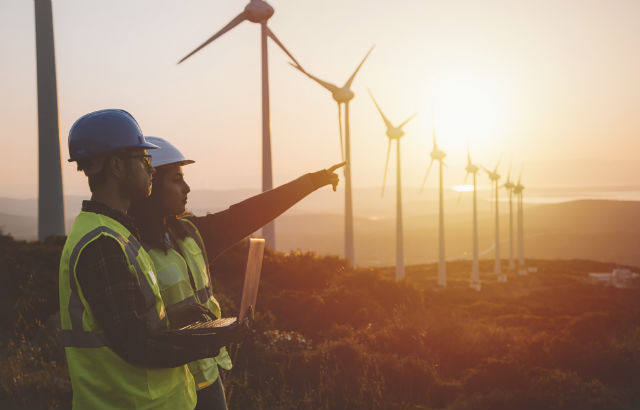
Wind is seen as one of the sources of sustainable energy
Written by Professor Rafael Leal-Arcas, Solutions for Sustainability: How the International Trade, Energy and Climate Change Regimes Can Help, analyses two of the most relevant global regulatory trends in recent international trade agreements, namely climate action and access to clean energy.
Sustainability: An urgent issue
Sustainability is seen as a necessity for the twenty-first century and has been given greater prominence in the context of discussions concerning climate change across the world particularly in relation to energy. Sustainable energy is defined as energy that is affordable, secure and clean. Since the Industrial Revolution at the end of the eighteenth century, human activity has gradually become the main driver of global environmental degradation.
The book brings together a top-down and bottom-up approach to the governance of sustainability. It shows that, whilst in the twentieth century there appeared to be a top down approach to sustainability, in the twenty first century there has been a move towards a bottom up approach. According to the work, this approach to governance can be demonstrated by the fact that city mayors have become increasingly involved in sustainability activities.
A paradigm shift
The book analyses energy and trade-related regulations in a range of jurisdictions to assess how conducive the regulation is towards achieving sustainable energy, and identifies gaps and overlaps in the existing legal framework.
The research focuses on the so-called five Ds of energy: Deregulation, Decentralisation, Digitalisation, De-carbonisation and Democratisation of the energy system. It also sets out solutions for the future, including how ordinary people too can have an impact.
Professor Rafael Leal-Arcas, Jean Monnet Chaired Professor of European and International Economic Law at Queen Mary said: "The book explores links and synergies between international trade and two of the most urgent challenges of the twenty first century: achieving sustainable energy and mitigating climate change.
"It takes the unique approach of not only examining how international trade can help achieve energy and climate goals, but also the impact of emerging tools and technologies, such as smart grids and demand response, as well as the potential role and impact of citizens and prosumers."






